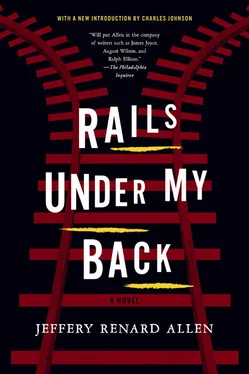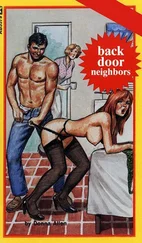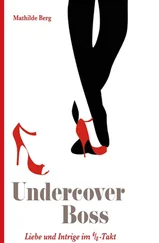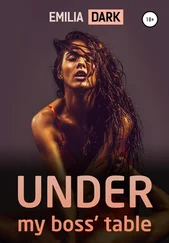Yall should have rode a boat.
Know how many colored folks in that city?
I’ll find you.
So we talk like that, him fussin and me fussin. Manfred knew what I knew. Life don’t sit still. It may wait a minute. So when time come to get back on that train, he get on. He ain’t look back. And I ain’t seen him since.
Where was you?
Mobile.
Mobile, Alabama? She could find it on any map.
No. The other Mobile.
Oh.
I get me a room in a boardinghouse. Live regular wit the woogies. Every now and then, a wonderin eye peep you, but the mouth say nothing. If somebody woulda asked, I woulda told. That’s how I am. Always was, always will be.
Well, I got me a job workin on this bridge. Know how to build a bridge?
No, Pappa Simmons.
Well, you got to build both ends at once. It meets in the middle. Building backwards.
Why?
Ask me if I’m an engineer. Well, I ain’t. I jus knows it meets in the middle. Building backwards. Well, I eat cheap and sleep cheap and save my money.
When we finished the bridge, I get me a job hauling sugar sacks at the process factory. I work and save. I bought me a brand-new Model T with cold hard cash. A man has to get around. My barking Model T scared all the dogs. And all the woogies laugh. Ernest, what you got there? they say. An automobile? You think worse than a nigga. Soon, they come beggin me fo a ride. I oblige. Charge them a nickel to ride in it.
So I ride and work, ride to work, work to ride. Well it went like that fo months and years.
Then the Broad River Baptist Association held their annual picnic. I ain’t never been to the church. Like I say, I ain’t big on church. The Scriptures got mo religion. I pray. God, kill all the woogies but leave all the niggas. But I figured I’d go to this here picnic.
Why?
I was gettin on in years.
I don’t under …
How you today, white folks? All the niggas look at me. This here a Jim Crow picnic, they say.
I’m Jim Crow, I say. You see, I had let them believe what they believe.
Well, fix you a plate.
I joined in the hospitality. I saw this girl, sitting out under the chinaberry tree, legs stretched out white and stockinged. Eatin an apple. Takin lil polite bird bites. She was a small woman. Small. Bird bones. If you glance her with the tip of yo elbow she snap right in two.
Porsha thought about it. Mamma remembered his wife, Georgiana, as a sickly woman with olive-colored hair. (Pappa Simmons rarely mentioned her, the name trembling on his lips, rattling the cage of his flesh.)
Yes, distant stovewood am good stovewood. Her all dolled up in a choir robe with gold sash. Didn know that in a few weeks we become a divine institution. I’d been waitin fo the right gal to come along. Nothing should be plucked until it’s ripe.
I joined her under the tree. We talked. I invited her for a walk in the trackless forest. Then I took her rowing on the lake.
Her teeth and lilies are alike
Sing, fellows, for my true love and
The water will take the long oar strike
Come sundown, I drove her home in my Model T. We screamed above the barking engine. Simple as that.
If you want to catch you a gal, give her something nice occasionally to wear, and praise her up to the skies whenever she has anything tolerably decent.
When the woogies see me in town wit this girl, they knows I was a nigga. Mobile ain’t but neigh big. Everybody got one foot in they do and one in yours.
Come morning, I’m fired. (Each day begins wit a lesson and ends wit a lesson.)
I had worked my way up to foreman. I worked my people hard and ain’t tolerate no nonsense. Mr. Simmons, they say, he mean as the devil. I try to teach em to work and save, work and save, work and save. Don’t spend every fool penny.
Boss man say, Ernest, you a good worker and bout the best foman I ever had. And I ain’t got nothin gainst niggas. But—
I understand, suh, I said.
Here yo pay, and here yo half-day. I know you wouldn want me to give you mo.
No, suh.
And Ernest?
Yes, suh?
Good luck. A nigga need all the luck he can git.
GEORGIANA WAS A LAZYBONES. Her mother and father let her do nothing but sit around all day. Watch them work. Lazybones. And many a time I talk to her something fierce to get her to lift a light finger. A man should never strike a woman. Rather trespass on an angel.
Wasn’t but two things a nigga could do in that town, wash or field. Unless you was a preacher, but the town already had one.
Did yall share—
By and by, befo you could blink good, Georgiana swell up and start to totin her belly round. We work, bear a child, work. Cept them woogies never pay you what you earn. Georgiana pray. I complain. Pray. Complain. Ain’t much else you could do. Then the night riders—
Night riders?
— mail me a letter. Nigra, you act like you don’t know who running the show. They wrong. I know.
That’s when I decide to come North, train or no train. Locomotion or no locomotion. We took what money we had and some we didn — I earned, see, saved; I earned and saved — took and stole away in the night.
How old was Inez?
I don’t member exactly but she was jus a girl. No older than you.
Inez often spoke about the three of them crowded into their first apartment, on South Park (later renamed King Drive after the beloved doctor-reverend). A kitchenette— railroad flat, she called it — heated by lumps of coal that warmed the iron potbelly stove. She taught Pappa Simmons to read by the stove’s light.
But I thought you said Page taught all his niggas to read? If he did, then Whole Daddy surely learned and shared.
Why’d you come here ?
Cause we followed the train and the train followed the bridge over the river and the river ran all the way to Cairo.
In Kankakee County?
Yes. We stopped in Cairo to change trains. You could go east or west or north. I asked the conductor, What’s the nearest city? He told me, Take that train, the one going north. We did. We here.
But Inez said—
I don’t care what Inez said. I tell you without lie.
EARLY AFTERNOON. The sky had already died from red fire to ash gray. Gray sidewalks, tar patches in the asphalt, vacant lots sparkling with old glass. Inez and George lived here in Morgan Park — far south, past Woodlawn, past South Shore — a two-hour train ride from North Park. Porsha strolled along the brick sidewalk with cold sun on her head.
She found Pappa Simmons palely asleep in his favorite talking chair. Pale but also on the edge of color. The red he had pined for, so many years — how many? it took her several minutes to count that number on her fingers — in reaching distance. She summoned George. He look funny, she told him.
George listened for his pulse, checked his heartbeat.
FRAGRANT COOKING brought Porsha to Inez’s bosom, a white welcome table, again and again. Inez, you got any of that applesauce? I’ll take four biscuits, please. Did you make more? Yes, cherry preserves. Inez, can you cook me one of those hamburgers? You ought to go in business. Now Inez can cook, Pappa Simmons said. She learned from the best, but she can’t hold a match to the best. But apples up here ain’t nothin like the ones we had back home. And the meat don’t taste live. To indulge in these culinary delights, Porsha marked the fourteenth day — why the fourteenth? the day after unlucky thirteen? she liked even numbers? the halfway point of the month? (well, that would be fifteen, or even sixteen) or perhaps it took the first two weeks of each new month for her to channel enough strength to weather Inez’s storm of pessimism? — of each month in her datebook. In this way she could remember to visit Inez. Then Inez started to forget. She forgot her recipes. She forgot the day of the week. She forgot all that happened the day before. She forgot your name. She mistook you for Mamma, insisting that Mamma’s aging face was masked behind your fresh skin.
Читать дальше












